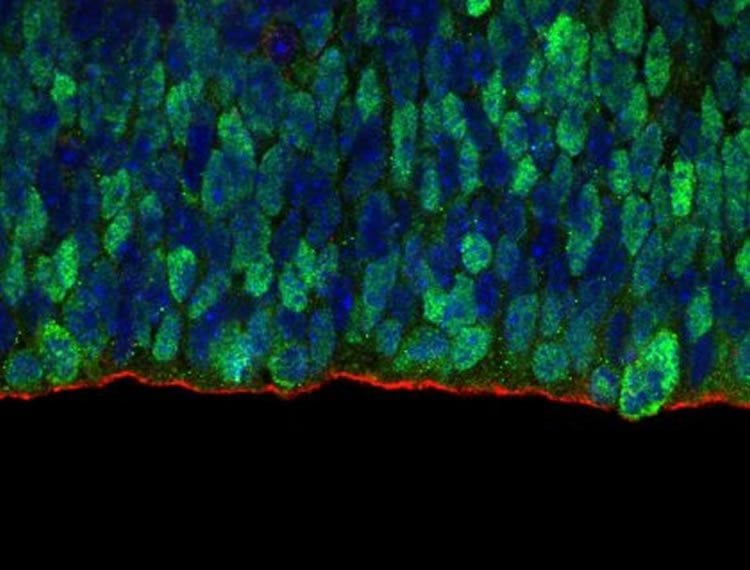Summary: A new study provides further evidence for immune system activation during pregnancy and disruptions in brain development. Many adult diseases, researchers say, may originate during fetal development.
Source: University of Queensland.
University of Queensland researchers have highlighted a link between fetal brain development and the origins of developmental diseases such as schizophrenia.
UQ Faculty of Medicine’s Dr Liam Coulthard said many adult diseases originated during fetal development.
“Complement factors – part of the immune system that kills bacteria and helps white blood cells treat infection – also shape the development of neural networks and normal brain development,” Dr Coulthard said.
“Complement factors have been linked to schizophrenia, autism spectrum disorder and non-hereditary epilepsy in genetic studies.
“Our findings mean we should be very careful when targeting the complement system to dampen inflammation during pregnancy, as there might be associated risk from treating pregnant women for inflammation.
“Either through infection or medication, complement factor activity has the potential to throw off that balance and therefore have consequences in adulthood.

The findings also highlight new and unexpected potential causes for developmental brain diseases as well as risk factors for mental illness.
“Local disruption of brain development by complement factors can also result in abnormal networks, neural positions or what type of neuron the stem cell becomes,” Dr Coulthard said.
Source: Liam Coulthard – University of Queensland
Publisher: Organized by NeuroscienceNews.com.
Image Source: NeuroscienceNews.com image is credited to the researchers.
Original Research: Abstract for “Complement: The Emerging Architect of the Developing Brain” by Liam G. Coulthard, Owen A. Hawksworth, and Trent M. Woodrufin Trends in Neuroscience. Published March 29 2018.
doi:10.1016/j.tins.2018.03.009
[cbtabs][cbtab title=”MLA”]University of Queensland “Brain Development Influenced by Immune System.” NeuroscienceNews. NeuroscienceNews, 17 April 2018.
<https://neurosciencenews.com/immune-system-brain-development-8828/>.[/cbtab][cbtab title=”APA”]University of Queensland (2018, April 17). Brain Development Influenced by Immune System. NeuroscienceNews. Retrieved April 17, 2018 from https://neurosciencenews.com/immune-system-brain-development-8828/[/cbtab][cbtab title=”Chicago”]University of Queensland “Brain Development Influenced by Immune System.” https://neurosciencenews.com/immune-system-brain-development-8828/ (accessed April 17, 2018).[/cbtab][/cbtabs]
Abstract
Complement: The Emerging Architect of the Developing Brain
Highlights
Some proteins traditionally associated with the complement cascade of innate immunity have novel functions during brain development.
The C5a–C5aR1 signaling axis maintains cell polarity in the ventricular zone through PKCζ. Impaired C5aR1 signaling during neurodevelopment can lead to behavioral deficits in the adult.
Migration of neurons from the ventricular zone to the cortical plate is a process that is dependent on the lectin complement pathway. Knockout of MASP1/2 causes cortical layering deficits which can be rescued through restoration of downstream complement signaling.
The classical complement cascade is required for normal postnatal synaptic pruning. C3b–CR3 interaction allows microglial engulfment of low-activity synapses.
Complement activation products have long been associated with roles in the innate immune system, linking the humoral and cellular responses. However, among their recently described non-inflammatory roles, complement proteins also have multiple emerging novel functions in brain development. Within this context, separate proteins and pathways of complement have carved out physiological niches in the formation, development, and refinement of neurons. They demonstrate actions that are both reminiscent of peripheral immune actions and removed from them. We review here three key roles for complement proteins in the developing brain: progenitor proliferation, neuronal migration, and synaptic pruning.






